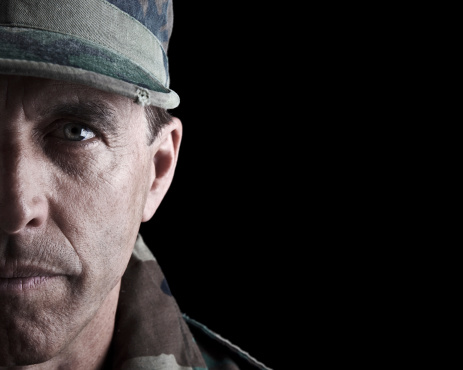Society assumes that our military training makes us invulnerable to attacks on our person. But society is wrong.
In 1997, the movie Good Will Hunting made its debut on the silver screen. Dr. Sean Maguire, played by Robin Williams, is a psychotherapist whose wife has passed away and is counseling Will Hunting, played by Matt Damon, after Hunting gets into some trouble with the law. These two wounded souls ultimately help each other as the movie unfolds, but a particular scene in the middle speaks powerfully to me and many other survivors of abuse:
For any and all sexual abuse survivors, it is never our fault.
Yet for male survivors, especially of military sexual trauma, we tend to hold onto it like some sort of security blanket. It must be our fault because society expects that, as a man, we are never to be placed in a weak or subordinate position.
Society assumes that our military training makes us invulnerable to attacks on our person. This is a patently wrong response. Everyone is equal when the end of a weapon is pointed at you. Especially with female perpetrators, there is a huge perceived coercive effect on who will be believed as a victim.
We are also not to blame for how we mask or cope with our traumas. A lot of male survivors engage in self-destructive behaviors to forget about the shame, hurt, and despair that the trauma causes. Many survivors engage in substance abuse, promiscuous sex, abusive and/or violent relationships to block out the memories—or because they feel they are not worthy of better.
It is also not our fault that we blindly sought help from the military and were rewarded with retaliation and harassment for speaking up. Some of us have been told by military psychiatrists that we were “lying about the rape” and then diagnosed with a random personality disorder. Some of us have faced commanders retaliating by forging height and weight records so they could discharge us as “weight control failures.” Many male survivors who served years ago were discharged under the oppressive “Don’t Ask, Don’t Tell” guidelines for homosexuality. That’s right, the victim was discharged for being victimized by another man.
None of this is our fault. Yet the Department of Defense engages in many victim-blaming behaviors. It allows the military branches to discharge sexual trauma victims because of their behaviors to cope with the trauma. The Department of Defense allows the military to discharge victims based on psychiatric diagnoses, such as personality disorders and adjustment disorders, instead of recognizing the real problem of post-traumatic stress disorder. And the Department of Defense allows the military branches to break faith with the survivors who have been kicked out before this “new awareness” of sexual assault began by not upgrading their bogus discharges. This is a failure of leadership. This is criminal.
It is high time to call the conduct of the Department of Defense exactly that: criminal. It is not individual personnel management decisions or individual medical decisions, but a system-wide failure. When will Congress stop allowing the military to engage in victim-blaming behaviors and hold their feet to the fire with true accountability?
Tell me: When?
Brian Lewis is a Navy veteran, healing rape survivor, and President of Men Recovering from Military Sexual Trauma.
Related Links:

